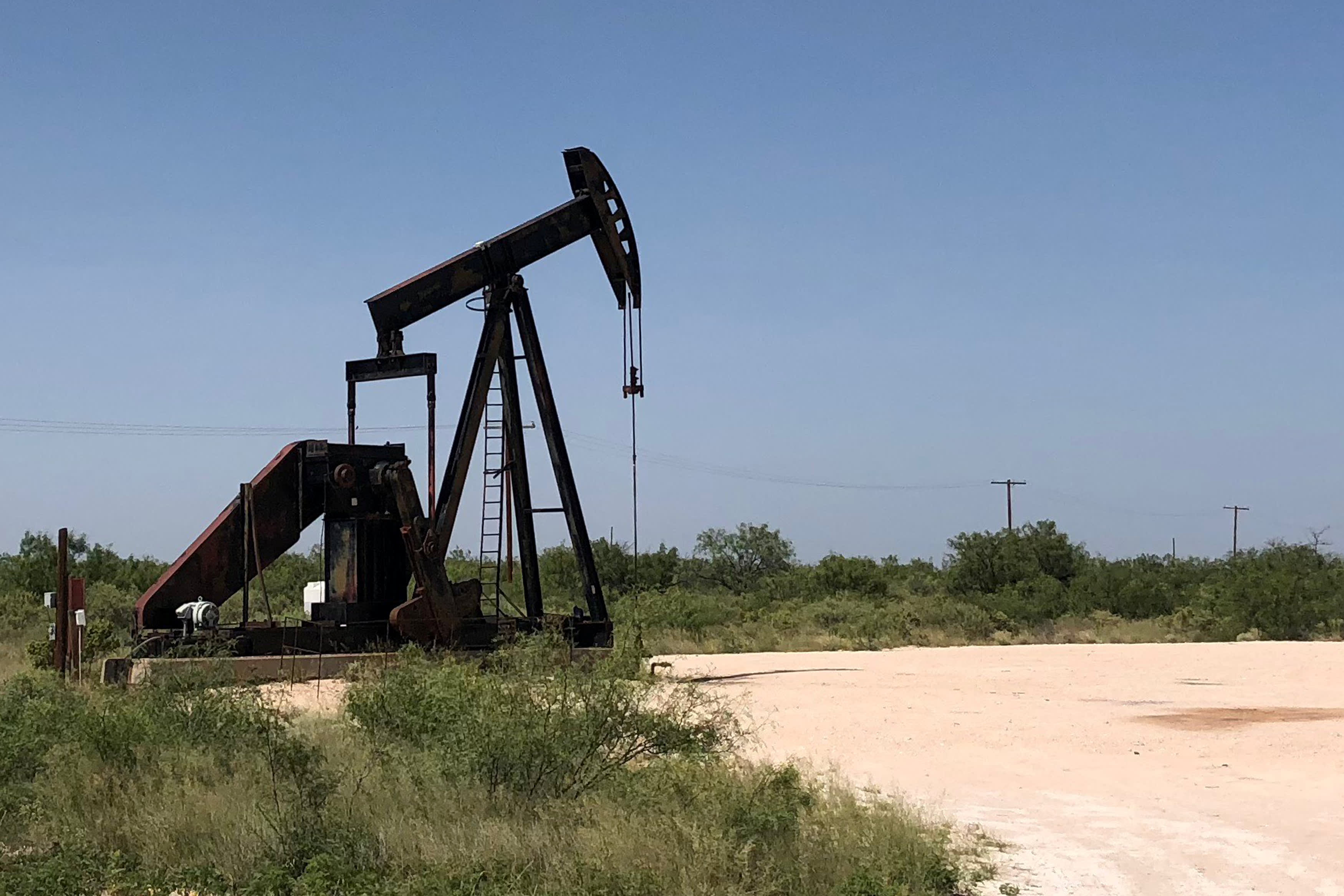
A pumpjack is shown outside Midland-Odessa area in the Permian basin in Texas, U.S., July 17, 2018. Image taken July 17, 2018. Liz Hampton | Reuters
U.S. crude oil hovered below $83 a barrel on Wednesday, pulling back slightly after rallying nearly 2% in the prior session.
Traders' focus has shifted back to supply and demand fundamentals as the threat of war between Israel and Iran has faded.
The market looks somewhat bearish at the moment with global oil inventories rising as crude that was stuck on the water due in part to Red Sea disruptions is now unloading, according to a Goldman Sachs note from Tuesday. This is reducing tightness in the market, according to the bank.
Goldman also sees the geopolitical risk premium factored into prices easing by another $5 to $10 a barrel in the coming months.
Here are Wednesday's closing energy prices:
- West Texas Intermediate June contract: $82.81 a barrel, down 55 cents, or 0.66%. Year to date, U.S. crude oil is up more than 15%.
- Brent June contract: $88.02 a barrel, down 40 cents, or 0.45%. Year to date, the global benchmark is up about 14%.
- RBOB Gasoline May contract: $2.73 a gallon, up 0.33%. Year to date, gasoline futures are up about 30%.
- Natural Gas May contract: $1.65 per thousand cubic feet, down 8.7%. Year to date, natural gas is down about 34%.
U.S. commercial crude stockpiles, which exclude the strategic petroleum reserve, fell by 6.4 million barrels last week, the largest drawdown since mid-January, according to data from the Energy Information Administration.
And President Joe Biden on Wednesday signed a foreign aid package that would expand sanctions against Iranian oil by targeting ports, vessels and refineries that knowingly accept the Islamic Republic's crude exports.

Under the legislation, Biden can waive the sanctions for national security reasons, likely limiting their impact on the oil market.
“We maintain our view that the Biden administration has no intention of strictly enforcing sanctions that could drive up global crude prices (and, as a result, US retail gasoline prices) in an election year,” the geopolitical risk service Rapidan Energy told clients in a note before the legislation passed.
Oil Prices, Energy News and Analysis
- Follow today's coverage of oil prices and the latest news on crude oil
- Solar manufacturers petition U.S. to impose tariffs on imports from four Southeast Asian nations
- Why the oil market shrugged as Iran and Israel appeared on the brink of war this week
- White House will ‘make sure gas prices remain affordable’ heading into summer, Biden advisor says
- Ukraine’s attacks on Russian oil refineries show the growing threat AI drones pose to energy markets
- Big oil is racing to scale up carbon capture to slash emissions but the challenges are immense
A prolonged rally above $95 a barrel for global benchmark Brent is unlikely at the current moment, said Tamas Varga, analyst at oil broker PVM.
The flow of oil from the Middle East has not been interrupted by conflict, production is growing in the U.S., inflation remains stubborn and OPEC has ample spare capacity to roll back on the market in the event of a supply emergency, Varga said.
“It is fair to conclude that the last two on the list played the most prominent roles in bringing the price of Brent down from $92/bbl less than two weeks ago to below $86/bbl on Monday,” the analyst told clients in a note Wednesday.
Don't miss these stories from CNBC PRO:
- Direct Iran-Israel war could spike oil by $30 to $40, Bank of America says
- Wall Street's scenarios for the Israel-Iran conflict from here and its impact on the oil market
- Morgan Stanley sees 'hot summer' ahead for energy sector, gives its favorite picks
- JPMorgan says U.S. ‘not out of the woods’ on inflation, stay overweight commodities
